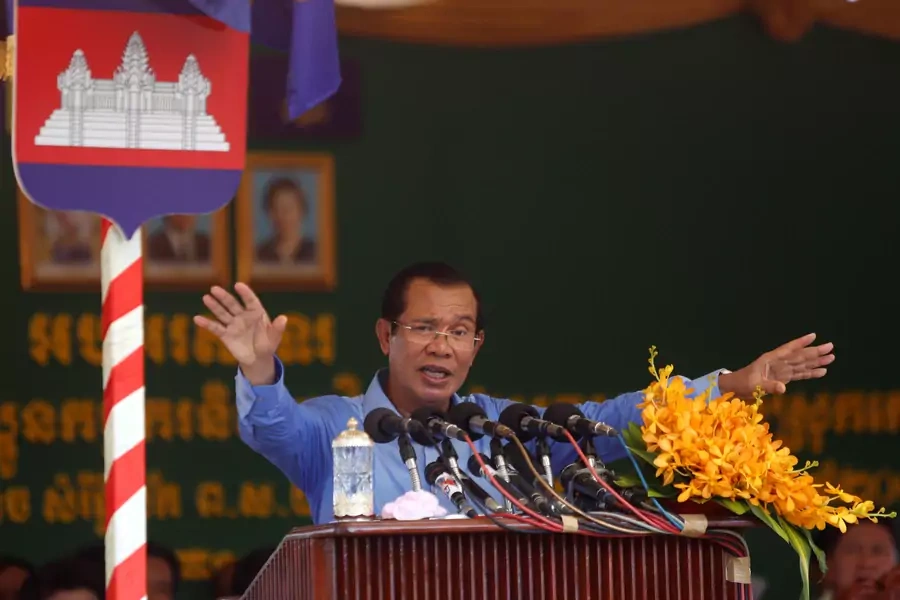Cambodia’s Elections: Some Initial Thoughts

In Cambodia’s elections this past weekend, Hun Sen’s Cambodian People’s Party (CPP) reportedly won all 125 of the seats contested in elections that were slammed by international observers, Cambodia’s now-dissolved main opposition party, and human rights groups as being neither free nor fair. After all, the Cambodian government had dissolved the major opposition party and did not allow it to contest the election, and also had shut down multiple free media outlets in the run-up to the poll. On Election Day, the CPP had said it won one hundred seats, but by the next day, it was claiming it had won all 125. If the CPP indeed does claim all 125 seats, it would mean Cambodia no longer had any opposition party in the legislature at all—a change from the past, when it had stronger and weaker oppositions at times, but almost always had some opposition presence. It would become a one-party government. (Nineteen small parties participated in this election vote but none of them apparently won any seats.) The CPP has now said it will form a government within sixty days.
In other words, this election, and the run-up period during which the government neutered civil society and opposition politics, seems to have decisively shifted Cambodia from a state that was some hybrid between democracy and autocracy—always leaning toward autocracy, for sure, but somewhere in between—into a complete autocracy. The country indeed is becoming little different, in its politics, from neighboring autocracies like Vietnam. Mu Sochua, vice president of the now-banned main opposition party, the Cambodia National Rescue Party (CNRP), said after last Sunday’s Cambodian election that this vote was the “death of democracy” in Cambodia.
More on:
It appears Hun Sen fears neither internal nor external pressure and no longer cares to even pretend to oversee a democracy. He also may believe that a full autocracy offers the best chance of eventually handing power to his son, who appears to be groomed to become the country’s next ruler, with the support of the armed forces.
But the election did not necessarily show a high degree of popular confidence in Hun Sen and his party. According to the Associated Press and other agencies, there were roughly six hundred thousand invalid ballots in the election. The high number may have materialized because many Cambodians spoiled their ballots, in protest of the lack of choices in the election—despite threats from the government against people who spoiled ballots. As Reuters notes, “As many as 594,843 votes, or 8.4 percent, of the 7.64 million votes cast, were invalid and spoiled, figures from the National Election Committee showed. By comparison, spoiled ballots in the last election, in 2013, comprised just 1.6 percent of the total.”
The spoilage suggests that, for at least a sizable percentage of the population, extended CPP rule—especially with no checks on the CPP—is not what they wanted. It may further suggest that if the major opposition party had run, it could have done well.
Despite the ballot spoilage, a sign of voter discontent, the opposition is stuck in a very tough place. Its most charismatic leaders are in jail or exiled abroad, and Hun Sen has boosted his already-immense power within the security forces. There seems little chance that prominent CNRP members could return to the country, unless they bend the knee to Hun Sen; the group may have to operate mostly in exile, at least for a period of time. Meanwhile, foreign countries have less leverage now than in the past, and the general democratic regression in Southeast Asia also helps Hun Sen. It is quite possible that now, after the election, Hun Sen will unleash further restrictions on media, civil society, and other activists voices, and clamp down even harder on individual opposition politicians.
In a subsequent piece for World Politics Review, I will assess how the international community will respond to the Cambodian election, and the direction of Cambodian politics over the long term.
More on:
 Online Store
Online Store